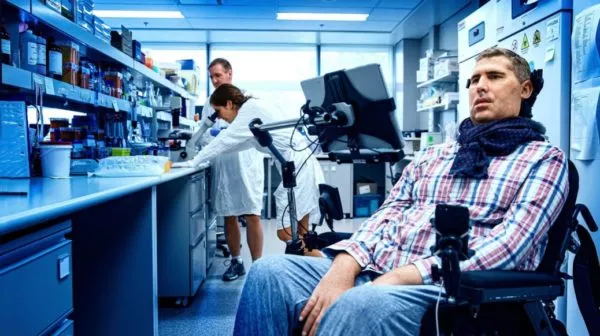By Amanda Heidt, The Scientist-
According to a 2019 National Science Foundation report, only 10 percent of employed scientists and engineers self-identify as having at least one disability, despite the fact that almost 20 percent of all undergraduates self-report the same, with disabled undergraduates enrolling in STEM programs at roughly the same rate as those without.
These statistics are likely an underestimate of the true number of scientists living with disabilities, as a culture of stigmatization and ableism—discrimination that favors people with typical physical and mental abilities—in academia makes the choice over whether to disclose a disability a difficult one, according to a commentary published May 18 in Trends in Neuroscience.Justin Yerbury, a molecular biologist at the University of Wollongong in Australia who coauthored the report with his wife, Wollongong psychology researcher Rachael Yerbury, studies motor neuron diseases, including a rare form that he himself was diagnosed with in 2016. Yerbury has amyotrophic lateral sclerosis, otherwise known as Lou Gehrig’s disease, which causes nerve cells in the brain and spinal cord to break down, leading to a loss of muscle control. In the piece, the Yerburys write that disabled scientists “may feel misunderstood, undervalued, defined by their disability, or worse—dismissed as not being able to contribute or compete in academia,” leading them to keep their differences a secret, or in some cases, to avoid STEM entirely.
Justin Yerbury answered questions by email about what prompted him to write the piece and how academia can be more inclusive of scientists with disabilities.
The Scientist: Can you tell me a bit about the impetus for writing the piece?
Justin Yerbury: I had just been through the process of assisting the National Health and Medical Research Council (Australia’s primary medical research funding body) with an update to their Relative to Opportunity policy to be more inclusive of people with a permanent disability and I wondered why this lack of disability access hadn’t been pointed out before. While this rattled around in my brain for a while I saw something on Twitter that made me wonder if people with a disability were not actually revealing their disability in grant applications, job applications, and promotion applications. I posed the question to the disabled in the academic community on Twitter and the responses inspired me to explore this further.
Click here to read the full article on The Scientist.



